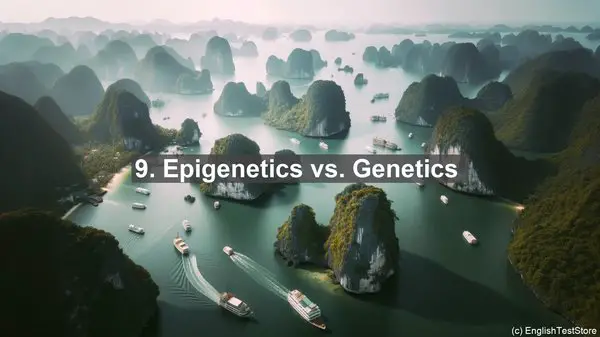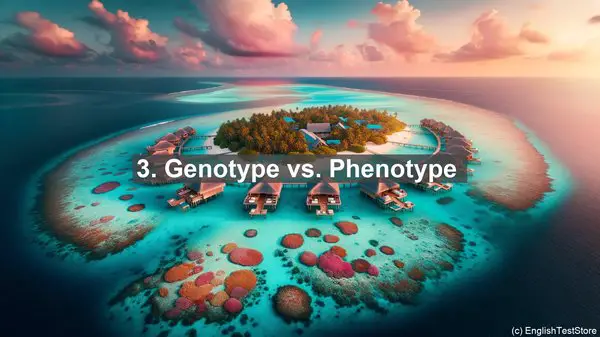Introduction
Welcome to today’s lesson. In the realm of behavioral genetics, there are several words that often cause confusion. In this lesson, we’ll clarify the meanings of these words, ensuring you have a solid foundation in this field.
1. Gene vs. Allele
While both terms refer to segments of DNA, there’s a distinction. A gene is a specific sequence responsible for a particular trait, while an allele is a variant of that gene. Think of a gene as a recipe, and alleles as different versions of that recipe.
2. Heritability vs. Inheritance
Heritability measures the extent to which differences in a trait can be attributed to genetic factors. Inheritance, on the other hand, refers to the passing of genetic information from parents to offspring. So, heritability focuses on the variation within a population, while inheritance is about the transmission of genes.
3. Genotype vs. Phenotype
The genotype refers to the genetic makeup of an individual, the specific combination of alleles they possess. The phenotype, on the other hand, is the observable expression of those genes. While the genotype provides the potential, the phenotype is what we see.
4. Homozygous vs. Heterozygous
These terms describe the allelic makeup of an individual. Homozygous means having two identical alleles for a gene, while heterozygous means having two different alleles. It’s like having two blue eyes (homozygous) or one blue and one brown eye (heterozygous).
5. Dominant vs. Recessive
Dominant alleles are expressed in the phenotype even if there’s only one copy, while recessive alleles require two copies to be expressed. It’s like a strong voice (dominant) overpowering a soft voice (recessive) in a conversation.
6. Polygenic vs. Monogenic
Polygenic traits are influenced by multiple genes, each contributing a small effect. Monogenic traits, on the other hand, are controlled by a single gene. It’s like a choir (polygenic) where each member’s voice adds to the overall sound, versus a solo performance (monogenic).

7. Linkage vs. Association
Linkage refers to the tendency of genes located close to each other on a chromosome to be inherited together. Association, on the other hand, is the statistical relationship between a genetic variant and a trait. It’s like living in the same neighborhood (linkage) versus having a shared interest (association).

8. Mutation vs. Polymorphism
A mutation is a rare, spontaneous change in DNA, often associated with disease. A polymorphism, on the other hand, is a common genetic variation that occurs in at least 1% of the population. It’s like a spelling mistake (mutation) versus a regional spelling difference (polymorphism).
9. Epigenetics vs. Genetics
While genetics focuses on the DNA sequence, epigenetics is concerned with the chemical modifications that can influence gene expression. It’s like the difference between the words written in a book (genetics) and the way they’re highlighted or underlined (epigenetics).
10. Concordance vs. Discordance
Concordance refers to the presence of the same trait in both members of a twin pair. Discordance, on the other hand, means the trait is present in only one twin. It’s like a synchronized dance (concordance) versus each dancer moving to their own rhythm (discordance).
